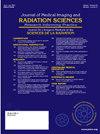HEROCARE:通过创新护理模式推进儿科放射治疗和教育
IF 1.3
Q3 RADIOLOGY, NUCLEAR MEDICINE & MEDICAL IMAGING
Journal of Medical Imaging and Radiation Sciences
Pub Date : 2024-10-01
DOI:10.1016/j.jmir.2024.101465
引用次数: 0
摘要
背景现在比以往任何时候都更需要创新的儿科癌症护理模式,以尽量减少治疗过程中对麻醉和镇静剂的依赖。香港理工大学开发的 HEROCARE(放射肿瘤学整体赋能)项目开创了一个先进的框架,强调为患者、放射学本科生和医疗服务提供者(尤其是放射治疗师)提供个性化的准备和体验式学习。方法HEROCARE模式整合了沉浸式模拟和跨学科研讨会,让儿童及其照护者为放射治疗课程做好准备,大大减少了对镇静/麻醉的需求。该模式是放射治疗专业学生和执业治疗师的实践培训基地,强调亲身参与、感同身受地与患者和照护者互动。HEROCARE 的实施显著改善了治疗效果,包括大幅减少了镇静剂/麻醉剂的使用,缩短了治疗时间,提高了患者的舒适度和依从性。同时,该项目还丰富了未来放射治疗人员的培训内容,让他们全面了解了以患者为中心的治疗方法和跨学科合作。参与者的反馈表明,他们对儿科患者的情感和身体需求有了更深入的了解,与儿童和家人的沟通得到了改善,在不使用镇静剂的情况下处理复杂临床情况的信心也得到了增强。该模式对高级实践专业人员的适应性有助于提高他们在体恤患者、复杂决策和协作实践方面的技能。结论 HEROCARE 项目不仅通过改善临床疗效和减少对镇静/麻醉的依赖彻底改变了儿科放射治疗,还极大地推动了放射治疗教育。通过弥合临床实践与学术培训之间的差距,HEROCARE 项目培养了新一代放射治疗师,他们不仅技术精湛,而且具有深刻的同理心,以患者为中心。这一模式有望重新定义癌症护理的专业标准,强调同理心和同情心在治疗学科中的关键作用。未来发展方向随着 HEROCARE 模式在儿童肿瘤学领域的成功实践,未来的计划将致力于在其他人群和医学专业领域推广应用。这包括将该模式应用于成人患者,并将其纳入更广泛的肿瘤学和放射学培训计划,以扩大这一开创性方法的范围和影响。本文章由计算机程序翻译,如有差异,请以英文原文为准。
HEROCARE: Advancing Paediatric Radiotherapy and Education through Innovative Care Models
Background
The need for innovative paediatric cancer care models that minimise the reliance on anaesthesia and sedation during treatment has never been more critical. The HEROCARE (Holistic Empowerment in Radiation Oncology) project, developed at the Hong Kong Polytechnic University, pioneers an advanced framework that emphasises personalised preparations and experiential learning for patients, undergraduate radiography students and healthcare providers, particularly radiation therapists.
Objective
This presentation outlines the transformative impact of the HEROCARE model in paediatric radiotherapy, detailing its dual benefits in enhancing treatment efficacy and educational outcomes. It highlights the model's role in fostering empathy and compassion among practitioners, crucial for patient-centred care.
Methods
The HEROCARE model integrates immersive simulations and interdisciplinary workshops to prepare children and their carers for the radiotherapy course, significantly reducing the need for sedation/anaesthesia. This model serves as a practical training ground for radiation therapy students and practising therapists, emphasising hands-on engagement, empathetic patient and carer interactions. This model, incorporating real-world clinical scenarios into education, enhances students’ professional skills, communication abilities, and emotional intelligence.
Results
The implementation of HEROCARE has led to remarkable improvements in treatment outcomes, including a substantial reduction in sedation/anaesthesia use, shorter treatment times, and increased patient comfort and compliance. Simultaneously, the project enriches the training of future radiation therapists by providing them with comprehensive insights into patient-centred approaches and interdisciplinary collaboration. Feedback from participants indicates enhanced understanding of the emotional and physical needs of paediatric patients, better communication with children and families, and greater confidence in managing complex clinical situations without sedation.
Extension Beyond Paediatric Care
Building on its success in paediatric settings, the HEROCARE framework is proposed as a model for continuing professional development in radiation therapy. The model's adaptability for advanced practice professionals helps in refining their skills in empathetic patient care, complex decision-making, and collaborative practice. This initiative not only exemplifies the integration of service and education but also sets a visionary standard for developing cancer treatment protocols that are both effective and compassionate.
Conclusion
The HEROCARE project not only revolutionises paediatric radiotherapy by improving clinical outcomes and reducing dependency on sedation/anaesthesia but also significantly advances radiation therapy education. By bridging the gap between clinical practice and academic training, HEROCARE cultivates a new generation of radiation therapists who are not only technically proficient but also deeply empathetic and patient-focused. This model promises to redefine professional standards in cancer care, underscoring the critical role of empathy and compassion in the therapeutic disciplines.
Future Directions
With the proven success of the HEROCARE model in paediatric oncology, future initiatives will aim to expand its application across other demographics and medical specialties. This includes adapting the model for adult patients and integrating it into broader oncology and radiology training programmes to enhance the scope and impact of this pioneering approach.
求助全文
通过发布文献求助,成功后即可免费获取论文全文。
去求助
来源期刊

Journal of Medical Imaging and Radiation Sciences
RADIOLOGY, NUCLEAR MEDICINE & MEDICAL IMAGING-
CiteScore
2.30
自引率
11.10%
发文量
231
审稿时长
53 days
期刊介绍:
Journal of Medical Imaging and Radiation Sciences is the official peer-reviewed journal of the Canadian Association of Medical Radiation Technologists. This journal is published four times a year and is circulated to approximately 11,000 medical radiation technologists, libraries and radiology departments throughout Canada, the United States and overseas. The Journal publishes articles on recent research, new technology and techniques, professional practices, technologists viewpoints as well as relevant book reviews.
 求助内容:
求助内容: 应助结果提醒方式:
应助结果提醒方式:


